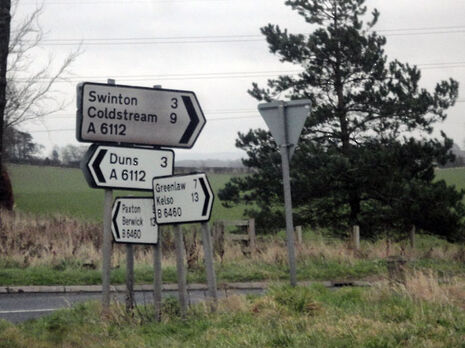The ultimate Facebook purge
Forget going through your friend list one by one: Bret Cameron deleted his whole account and started again from scratch

Facebook is one of the most powerful companies in the world. In January, the website recorded 1.3 billion active users, more than 15% of people on the planet. In 2014, 87% of internet users aged 18 to 29 were reported to be active on Facebook. It is rare to find a student who is not on Facebook; I only know one, a stick-two-fingers-up-at-the-establishment kind of guy, and, though I have sympathy for his higher ideals, I can’t help but feel that he misses out.
Still, it is worth recognising how actively Facebook is encouraging users to create content and share their data and what a pernicious time-sink the site can be.
Last year, I deleted my Facebook account and started over. Some called it a drastic move, others bewailed the loss of memories, others said that I defeated the point by creating a new account. I never intended it to be a political move. I doubt the loss of one in 1.3 billion would bother anyone at all, except, maybe, me.
It was, instead, an attempt to control my online identity. I am not (too) embarrassed by my long-haired days or my spot-infested youth, though I am in no particular hurry to relive DofE 2009. But I wanted Facebook to be about me as I am now, free what I had written when I was fourteen, free from strange moments thrown into sharp relief by fourteen-year-olds with cameras. I no longer wished to play Candy Crush Saga or Farmville; I no longer wished to see the same photo of Trevor Macdonald every day.
This situation could, perhaps, have been resolved by milder means. I could have put aside the time to moderate my account, hiding and deleting posts and pictures, severing dubious friendships. But Facebook makes purgation of this kind pernickety and time-consuming. I had been reasonably active on the site since 2008, so I had six years of material to sort through. There is no (official) way to delete more than one post at a time, and no easy way to overview the contents of your online identity at a glance.
Besides, there were some aspects of my online identity that just wouldn’t disappear. There were games and apps which refused to remove themselves, earlier posts which could not be hidden. Strangest of all, my so-called ‘life events’ could not be removed. My pretend marriage to my friend Oscar could not be eradicated, despite pretend divorcing him some time ago. My birth was unchangeably associated with Grant (my actual dad) and Bertie (not my actual mum, but some pot-head from Sheffield).

There’s a reason Facebook make it difficult to delete than one post at a time, or to remove life events, and that’s because what users post provides the content that keeps people coming back. Part of the success of Facebook is that it creates intimacy and familiarity out of scenarios that, were they made manifest in the real world, would be very public.
Even the language used to encourage us to post is carefully selected to maximise its persuasiveness. Facebook assumes the role of an intimate friend: "What’s on your mind?", it asks. It’s a tacit goad, an invitation rather than a command; it’s something your grandmother might ask you if you’re acting out of character. But, instead of explaining to your grandma your thoughts on the transience of the human experience, by replying to Facebook, you publicise your thoughts to a community of hundreds.

Not everyone replies. In the dystopian universe of Facebook, users are divided into two main groups: producers and consumers. Producers create content for people to laugh, cry and roll their eyes at; they broadcast banal statements about relationships, the weather and the very nature of existence. Consumers silently gorge themselves on what the producers make available; they may love or loathe the providers of their virtual sustenance, but they are entrapped in an endless cycle of scrolling and refreshing.
The producers are the problem, because they give Facebook its magnetism and, though they have fallen deeper into the mire of Facebook-induced time wastage, they wittingly or unwittingly drag the majority of more passive users with them.
The two groups are not mutually exclusive. I am a consumer, but with occasional tendencies to produce. I am part of the problem, but I can be part of the solution. If we restricted our use of Facebook to its less public functions, like organising events and private messaging, we would enable people to spend less time on Facebook and more time doing things in the real world that matter, like making tea, conversation and love.
 News / Fitz students face ‘massive invasion of privacy’ over messy rooms23 April 2024
News / Fitz students face ‘massive invasion of privacy’ over messy rooms23 April 2024 News / Climate activists smash windows of Cambridge Energy Institute22 April 2024
News / Climate activists smash windows of Cambridge Energy Institute22 April 2024 News / Copycat don caught again19 April 2024
News / Copycat don caught again19 April 2024 News / Emmanuel College cuts ties with ‘race-realist’ fellow19 April 2024
News / Emmanuel College cuts ties with ‘race-realist’ fellow19 April 2024 Comment / Does Lucy Cavendish need a billionaire bailout?22 April 2024
Comment / Does Lucy Cavendish need a billionaire bailout?22 April 2024






